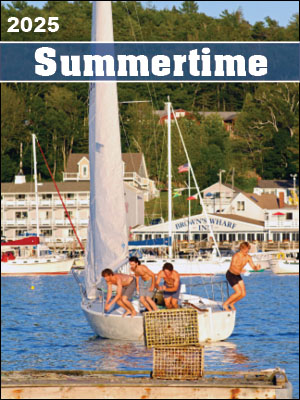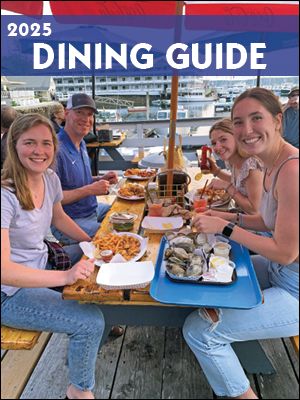More cod fishing restrictions on the way
Another year, more dire news about New England's oldest fishery.
The Gulf of Maine cod season will look a bit differently in 2014-15 thanks to further restrictions and closures of portions of the fishing grounds.
Ben Martens, Maine Fishermen's Alliance executive director, said a stock assessment conducted over the summer yielded shocking numbers, which led to federal intervention for a fishery that was labeled in a state of emergency in 2012.
Because of the dwindling biomass stock of cod, certain fishing grounds will be closed, and the amount of cod that can be caught per trip will be limited to 200 pounds.
The rolling closures, which includes large swaths of Massachusetts' fishing grounds, put a heavy restriction on Bay State fishermen, while Maine's fishermen will be tangled in the trip limit and allotment, Martens said.
On Monday, Nov. 10, the National Oceanic and Atmospheric Administration (NOAA) levied heavier restrictions on a cod fishery that has struggled in recent years. Large sections of the fishing grounds will be heavily restricted or shuttered until May, 2015.
As allotments have capped the amount of cod that can be culled from New England waters, a new 200-pound per trip catch limit could further restriction the amount of fish caught.
Even more worrisome, Martens said, is the apparent lack of fish in sea.
“The update is that we might be in even worse shape than we imagined,” he said. “When the new numbers (from a stock assessment performed last summer) came in, they showed that we are at three or four percent of where the spawning stock biomass levels should be.”
In 2013, the catch allotments were cut by approximately 70 percent, then drastically reduced the following year, leaving a total of 830 tons of cod for the Gulf of Maine.
On Monday, Nov. 17 Martens said he was heading to the New England Fishery Management Council meeting in Newport, Rhode Island, which will continue through the week. The subject will turn to cod on several of the days, and solutions and recommendations will be presented.
One of the drawbacks is that the trip limit on cod may negatively effect other ground fishermen, who have turned to pollock and other species to augment their salaries, Martens said. Smaller operations, such as recreational boats and fishermen, would likely be harder hit than the larger boats, which have more sophisticated technology for targeting specific species.
“Some vessels target a certain fish, but sometimes fish, like redfish or haddock, clump together,” he said. “(The vessels) might reach their limit on cod when they were after pollock.”
Martens said that while it was hard to find a silver lining in the further enhanced restrictions on fishermen, the one bright spot might be for cod's future.
“Hopefully, this will help rebuild cod stocks,” he said. “I know a lot of (fishermen) have tried to avoid cod and are going for other species to try and lengthen their seasons because of the low allocations.”
Event Date
Address
United States

























